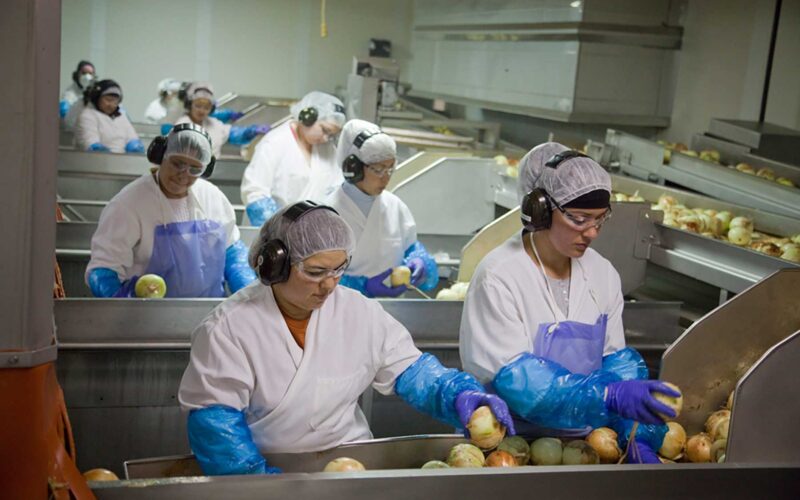The FDA has issued a new requirement that affects all companies involved in food supply chains. Known as FSMA 204 (the Food Safety Modernization Act), this new act requires even more detailed records of food traceability.
We’ve made sure our products have been fully traceable at Gills Onions for over a decade. The FDA’s newly raised bar will change very little about how we manage our food supply chain. But we sat down with Miguel Avila, Gills Onions’ Food Safety Quality Assurance Manager, to understand more about this FDA requirement and what the regulation means for Gills and the food industry.
Understanding the New FSMA 204 Rule
The new FSMA 204 rule mandates that companies in food supply chain management provide detailed records of food traceability. This means records should be kept and available to track the origins of all produce and animal products. Then, if there are any foodborne illness outbreaks, the response to managing that outbreak can be handled quickly.
“In a nutshell, the rule makes tracing any product back to its source more efficient,” Avila said. “Whether it was grown or raised (if it’s an animal product), you’ll have full traceability to the original source.”
This higher standard keeps consumers safer when managing outbreaks and understanding the origins of any issues.
Understanding Full Traceability in Food Supply Chains
Gills has processes that make it possible to trace any product out in the market straight back to the growing region it came from. This system has always been in place, ensuring proper safety measures and quality management are part of the Gills products.
“Our traceability system is great,” Avila said. “We can trace back any product back to the growing region, back to the seed, back to when it was planted — we know when it was harvested, when it reached our facility, when it left our facility, and where it went.”
Avila said that Gills has been fully compliant in this way for years, and the new FSMA 204 rule will really just change a few minor documentation details.
Food safety issues are rare at Gills, but the traceability process is also used for quality assurance. If Gills ever gets word that a particular batch of onions was more watery than normal, or didn’t have the shelf life typical of Gills products, then that crop is traced back through its full growing life to see what might have caused a difference.
“We do our due diligence,” Avila said. “We want to see if anything different was done to that specific raw product that ended up causing an issue, so we can address that right away.”
Managing Full Compliance
One of the benefits of the Gills Onions growing process is that our onions come directly from our sister company and growing partner, Rio Farms. This means that Gills can control the quality of our onions all throughout the growing process.
“We aim to control quality from all areas,” Avila said. “We want to get the nutrients the best as they can be. We pay attention to when the onions are planted, how long they’re grown before they’re harvested — all the things that contribute to a quality final product.”
“We really do well with keeping our certifications, which comes from a lot of hard work from multiple departments — food safety, maintenance, production,” Avila said. “That’s one thing I’ve seen Gills Onions be very proud of, as we should be. We consistently pass food safety audits.”
Are you interested in using some of the safest and highest-rated onions on the market? Contact our sales department to learn more today!

